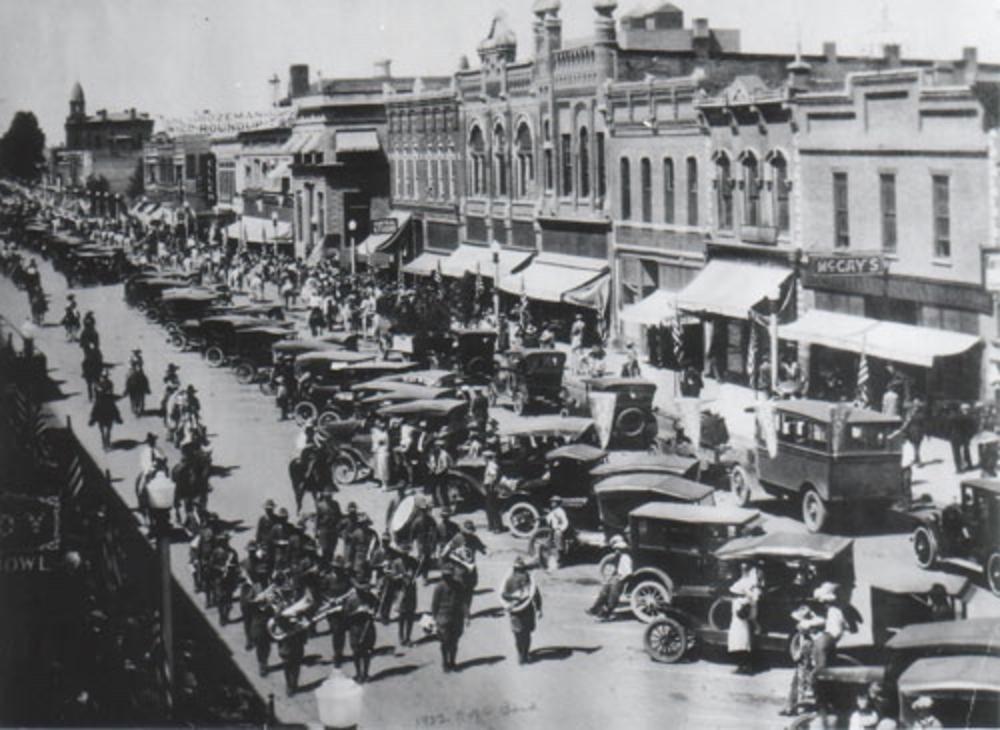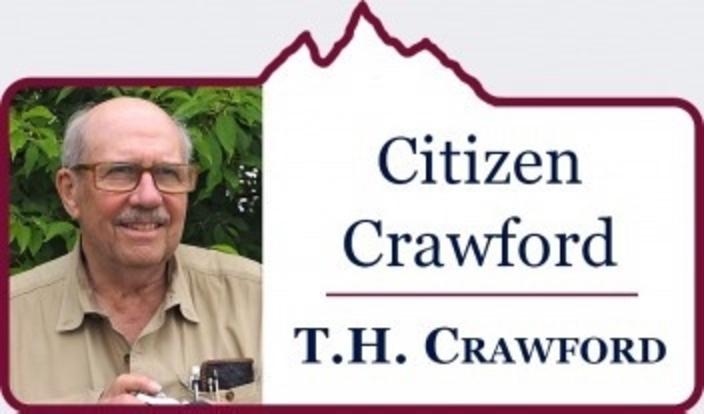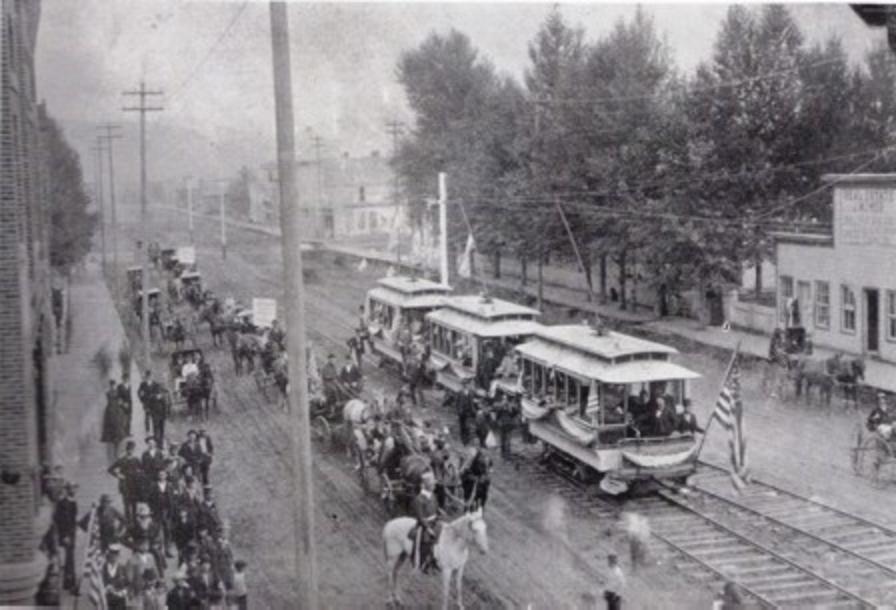Back to StoriesIt's Election Season And The Future Of Bozeman Is At Stake
October 4, 2017
It's Election Season And The Future Of Bozeman Is At StakeTim Crawford Poses Tough Questions Aimed At Those Running For Office
In a little more than a month Montanans will go to the polls
to elect local leadership.
The Bozeman City Commission elections are of immediate and
serious local concern. My bona fides of love for this community are fairly
sound, as a longtime downtown business owner and citizen of numerous other
involvements, so I think my thoughts on the city commission race may be of
interest despite my not being a voting resident.
I once ran and won a seat on the city commission in Ketchum,
Idaho as it coped with a boom. I also, with pride, renovated a historic building in downtown Bozeman along Main Street. You could even say that I have a vested interest in maintaining the economic viability of downtown Bozeman.
But Main Street does not exist in isolation from the adjacent historic neighborhoods and for those who believe individual business interests should trump the sense of community that exists in the neighborhoods, I think it is wrong.
.
To date as I assess the city commission contenders, I find most of their
qualifications for office to be fairly vague considering the hard questions facing
them on the future viability of Bozeman.
I certainly agree that experience on citizen boards, a
willingness to listen to the views of constituents, and familiarity with
planning policy are valuable qualities.
However, there seems to be scant information in our media as to what the
aspirants’ macro visions for the future of Bozeman are in terms of buildout and
necessary infrastructure.
Where are we headed as a community? And is that the direction we want to go?
Contemplating those issues requires courage and on that front, I see little.
Even amongst those who are seeking re-election and presently
serving on the city commission, the tenor seems to be one of resignation to a fate
that is beyond their control.
If the mayor and city commission aren’t laying out a community vision, then who is? What is their stand on current growth trends?
What is the
basis for their opinions? Whose
interests, on balance, do they represent? What other city do they want Bozeman
to emulate? When they imagine Bozeman in 2037, what kind of place do they see?
As Bozeman goes, so will go the Gallatin Valley.
I think there are damn few Bozemanites who want even a
pale replica of the urban discomfort from which most of the newbies have flown.
Growth may be inevitable but bad growth that destroys the essence of
communities is not. Managing growth involves a willingness to make difficult
choices and it really comes down to values.
Values do not involve the mundane question of whether an intersection
should have four-way traffic lights or a roundabout. Values speak to our sense of place. They involve who and what each of us is willing to defend. Values mean doing
the right thing rather than treating decisions as a means to increase one's personal
popularity among those swaggering with the biggest bank accounts. Values mean protecting citizens who often, in disputes with big money, feel as if they are the underdogs.
"I think there are damn few Bozemanites who really want even a pale replica of the urban discomfort from which most of the newbies have flown. Growth may be inevitable but bad growth that destroys the essence of communities is not. Managing growth involves a willingness to make difficult choices and it really comes down to values." —Tim Crawford
One question which I think needs to be asked of the city
commission and mayoral contestants (I can’t resist the term) is their
perspective on the shibboleth of the necessity of growth in order to avoid
entropy.
In other words, do they believe that if Bozeman's population isn’t racing
forward at 4 percent annual growth then the community is dying?
Probably most of the current candidates pay lip service to
“smart growth” or some similar iteration with precious little definition of its
tenets. It’s a little like patriotically swearing allegiance to a flag without
understanding the deeper values it emblemizes.
In my last column I
asked this of the Bozeman School Board and I think it applies even more so to
the city commission.
Who represents community
values and who is teaching them?
Who is willing to
accept responsibility for the city/county’s lack of strategy for confronting
growth? The absence of an answer was evidenced most recently in the school
board’s myopic decision to sell off the green space at the Emerson School.
Not one city commissioner has risen up to speak out on the
value of this green space as an important asset to the citizens of Bozeman. Why?
"Values do not involve the mundane question of whether an intersection should have four-way traffic lights or a roundabout. Values involve who and what you are willing to defend. They mean doing the right thing rather than treating decisions as a means to increase personal popularity among those swaggering with the biggest bank accounts."
Most of what I see from the present city commission and its
mayor are attempts to please developers while trying to evade the rising
general ire of our citizenry. In fact, to some it is coming across as arrogance
and, oddly, being expressed in the hostile treatment of citizens who raise valid
questions about growth.
Elected officials
have spoken disparagingly about the hundreds of citizens concerned about the direction
of downtown infill. Those city officials have tried to discredit them by
labeling them NIMBYS but I have no doubt that not a single currently-serving
city commissioner would be happy if Andy Halloran’s proposed characterless
high-rise at Black and Olive were sited along their property line. I doubt that hardly any citizen would. Commissions past have denied development over protests from neighborhoods.
I know many of the people affiliated with Save Bozeman. Their movement has more community
spirit than Andy Halloran could ever hope to buy.
The attitude from the city seems to be that anyone who lives
close to downtown ought to accept their neighborhood character being eroded by infill to serve “a greater good” but what greater good would that be?
If the city really did do an ethically-responsible job of informing the public—spelling out in clear terms— what the impacts of its radical changes to code would be, then why are so many citizens upset and feeling blindsided? Some of the founders of Save Bozeman have penned a compelling op-ed that casts doubts on the city's claims.
None of the people I know, who are affiliated with Save Bozeman, are "anti-growth" or naively "anti-change". Most are business people in their own right. Most would reasonably accept a scaled-down version of Halloran's project suitable to the architecture and nature of their neighborhood.
Neighbors reached out to Halloran in good faith early on, and made those sentiments clear, but he rejected them. His projects have left other communities divided, including the razing of a historic structure in downtown Missoula.
Meanwhile, there is scant evidence, despite claims by the Downtown Bozeman Partnership, that said infill will
appreciably slow the rapid suburbanization of the Gallatin Valley beyond the city limits. Nor will it
result in greater housing affordability for young working class folks and
families. Nor is there any evidence supporting the contention that unless projects like Mr. Halloran's are approved, downtown Bozeman will die. This is a myth that has been promoted but does not hold up to scrutiny.
Infill’s only certainly is that it will leave our downtown
core more congested, noisy, architecturally bland (if you use Mr. Halloran’s
buildings as an example) and make it increasingly a place built for visitors.
Bozeman’s motto is “the most livable place.” How does this
square with reality?
As has been pointed out by others, there seems to be more
serious attention given by the city commission to the size and construction of signage than the
buildings to which they are appurtenant.
Angst over density is now a critically controversial issue and many feel
their neighborhoods being steamrolled. Those who have lived for generations
near downtown are paying the price for the city’s erratic approach to growth.
For instance, the lessening or abandonment of parking
requirements to promote growth in different parts of town professed to be “underutilized”. How and what determining factors are being
considered? Do the city commissioners find their own neighborhoods to be underutilized?
The city planning staff, I’ve been told by many people, is in a state
of disarray, and it has never articulated how the "build-out of infill” is likely to affect the character of downtown neighborhoods. Best I can tell, city officials seem to approach infill as an abstract “seat of the
pants” exercise rather than listening to the people their decisions are
affecting. They say “trust us” but their attitude gives us little reason.
Is this how cities that tout themselves as “the most livable place” plan for the future?
It isn't easy for me to write a piece that holds friends of mine, who serve on the commission, to account. Climate change was alluded to by Mayor Carson Taylor in
consideration of changing parking restrictions to promote growth in the North 7th
Avenue area without providing any real specifics.
Climate change is important but not tangible for most people.
Citizens having their neighborhoods transformed by poorly-considered decisions,
however, is not abstract.
Relating to the mayor’s expressed concern for addressing
climate change, has the basic idea of mandating solar orientation for new buildings
been considered for both residential and commercial in light of his quest to be
a carbon hawk?
One of the other commissioners who has demonstrated an inability
to grasp planning issues, suggested vaguely that regulation changes are a “great thing”? What does “great thing” mean?
The school board’s decision to liquidate the Emerson lawn
shows that the kind of growth inundating the city is not
paying for itself. Another line of reasonable questioning for the current
commission and candidates is asking them if rapid development is paying its own way?
If yes, then please help me find answers to the following: why is the school board selling off critical
green space and asking taxpayers to continuously pony up to pay for new schools? Why do taxes continue to rise in Bozeman? Why will the mayor make
yet another ill-advised plea to convince us that we should spend tens of
millions of dollars on a new law and justice center at the same time Gallatin
County commissioners refused to put another open space bond, which could have
saved the Emerson lawn, on the ballot?
When I ask “is development paying its own way?”, I mean
asking who is footing the bill to pay for swelling additional urban costs? This
includes infrastructure and its mammoth future maintenance that ought to be borne by
the developers who are now profiting from growth but whose short-term profits are
being subsidized by the already-strained citizen tax base.
You would think the city commission aspirants who claim to
have some knowledge of planning would at least have a rudimentary ability to
figure the future costs of development. At least it seems to this taxpayer that past expenses of development can reasonably predict the coming skyrocketing
costs.
Still another question for consideration is how finite
resources will be applied to growing demands for public transportation? This is still
another favored topic of the mayor and current commission who are allowing
hundreds of apartments and new hotel rooms to be added downtown yet waiving
logical parking requirements.
A serious cost of Bozeman’s growth to working class
people is displacing those who will never be able to afford the apartments
being built by the likes of Halloran downtown.
Do this and future city commissions intend to provide public
transportation like bus service for workers to and from the outlying “bedroom
communities”? Will it offer regular public transportation to the ski areas and
trailheads that the new allegedly vehicle-less downtown residents will expect to receive?
Interestingly, the demand by developers and the city’s
inclination to reduce parking requirements has not been connected to any plan for
increased public transport or the cost of soon having to build new parking garages, let alone resolving the question of who will be
asked to pay for it?
Planning for growth without sound fiscal bases and
corresponding regulation insures a future of unexpected and very likely
unwelcomed outcomes. They will come replete with plausible denial of
responsibility from elected officials who will claim they didn’t know better
when seeking re-election. We who love Bozeman, who live here, work here, pay taxes here and who really do put a premium on its livability are owed answers.
Some readers rightfully will say it is not enough to only point out
problems. That it is the job of an opinion columnist like me to suggest solutions. Okay, here are two.
First, I am suggesting that community forums be held, and quickly,
so that those city commission candidates hoping to represent the citizens of
Bozeman be seriously queried, if not grilled, as to the specifics of their
vision for the future. They ought to state whatever their commitments are to
accomplishing their stated goals.
If such forums are promptly held and correctly reported by
the daily newspaper, it would give everyone a clear idea of the candidates’
values so that citizens can keep them in mind as they head to the voting booth.
This kind of forum would reveal who is willing to treat
citizens who have legitimate questions with the respect they deserve. Second, the city should commit to assembling a comprehensive report, available to all citizens, that takes a hard look at the costs of growth—who wins, who loses and who pays?
In the meantime, let us see who the candidates of substance are. By
electing people who speak with vision and not with meaningless clichés into office, Bozeman
can prevent this current operetta of meek leadership from turning into a
fully-fledged tragic opera.
Related Stories
February 26, 2019
Boom-time Frenzy: What Kind Of Prosperity Destroys The Foundation It Is Built Upon?
Never mind Greater Yellowstone's super volcano, there's already an epic explosion occurring in some corners of the ecosystem. And it's called...
March 13, 2019
The Perils Of Going Along To Get Along
What does it say about us when we have leaders who don't have the courage to act?
February 7, 2018
Projecting Nature's Beauty—Rejecting Blight In Building And Thought
Lori Ryker says we live in a spectacular place, so why doesn't architecture always treat it that way?






